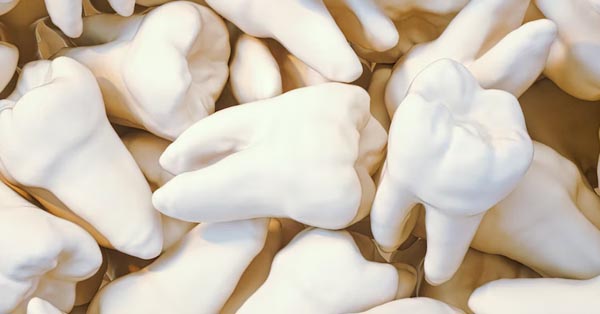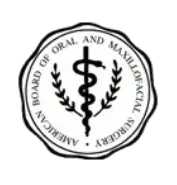How long does it take to recover from a wisdom tooth extraction?
By: Claire Sissons, Medical News Today
Are you planning to visit us for a wisdom tooth extraction soon?
Before you come in, get yourself prepared with these tips from Medical News Today! The Woodview Oral Surgery Team
Wisdom teeth removal is one of the most common dental surgeries. It can take up to 2 weeks to recover fully after wisdom teeth removal. Looking after the wound properly can help a person to heal as quickly as possible.
Wisdom teeth are large teeth that grow at the very back of the mouth. Most people’s wisdom teeth come through between the ages of 17 and 25. Some people may not have any wisdom teeth come through at all.
Sometimes, there is not enough room in the mouth for wisdom teeth to move into the right position. They might break through the gums at an angle or only come through partially. When this occurs, they are called impacted wisdom teeth, and they can cause problems, such as pain or an infection.
The length of time it takes to remove a wisdom tooth depends on the tooth and the difficulty of the surgery.
How long does it take to recover from a wisdom teeth removal?
Recovery from wisdom teeth removal usually takes a couple of weeks.
Some people might need stitches to help close the wound.
The dental surgeon will usually remove the stitches after about 1 week.
Sometimes, the surgery causes bruising, swelling, and pain, which will also require time to heal.
Recovery from wisdom tooth surgery will be gradual, but people should see some improvement every day.
The healing process can be broken down into the following stages:
- First 24 hours: Blood clots will form.
- 2 to 3 days: Swelling of the mouth and cheeks should improve.
- 7 days: A dentist can remove any stitches that remain.
- 7 to 10 days: Jaw stiffness and soreness should go away.
- 2 weeks: Any mild bruising on the face should heal.
Recovery time will be different for everyone. If blood clots become dislodged from the wound, or the wound becomes infected, recovery may take longer.
How to speed up healing
Blood clots will form in the place where the tooth was removed. Blood clots are an essential part of the healing process because they:
- help prevent too much bleeding
- protect the wound from infection
- allow new tissue to grow
- protect the exposed bone
It is particularly important not to dislodge these blood clots in the first 24 hours. People should avoid:
- brushing teeth next to the extraction site
- rinsing the mouth
- drinking hot drinks
- eating food that requires chewing
- avoiding sucking on straws, smoking, or drinking alcohol for at least 24 hours
It is a good idea to gently rinse the mouth with antiseptic mouth rinse after 24 hours.
What can you do immediately after surgery?
Pain relief medication may help to relieve discomfort after wisdom teeth removal.
People should take the advice of their dentist or surgeon on how to aid recovery.
They should give clear information on any medication to take and what to do to encourage healing.
Advice might include biting on a gauze pad in the extraction area for 30 minutes.
A dentist or surgeon may also suggest using an ice pack for the first few hours after surgery.
Holding an ice pack to the outside of the face over the area of the extraction site for 15 minutes on and 15 minutes off will help reduce discomfort and swelling.
A range of cold packs is available for purchase online.
People will not be able to drive for 48 hours if they have been in the hospital for surgery and had a general anesthetic. If possible, it is a good idea to take 1 or 2 days off work or school after surgery.
People can take pain relief medication, such as ibuprofen, to help with pain and discomfort after wisdom tooth surgery. Ibuprofen is available for purchase over the counter or online.
Tips for home care
It is essential to keep the wound clean while it is healing. Because people still need to eat and drink, food can easily get stuck in the area where the tooth was removed. This can make keeping the wound area clean a bit challenging.
Try the following to help keep the wound clean:
- using an antiseptic mouth rinse to prevent infection. A range of products is available for purchase online.
- rinsing with warm water and salt to reduce swelling and soothe sore gums
- raising the head when sleeping to feel more comfortable
As well as pain, some people will feel tired after having their wisdom teeth out and might choose to avoid exercise for a few days after the surgery. What foods can I eat after wisdom tooth extraction?. It can be difficult to eat after having
What can you eat?
Eating soft or liquid foods can help to prevent damage to wounds. Some examples are:
- soup
- jello
- soft noodles
- eggs
- mashed banana
For the first few days after surgery, avoid foods that need chewing, such as sticky candy or chewing gum as these may get stuck and can cause pain and damage to the healing wounds. Also avoid hard, crunchy food, such as chips, pretzels, nuts, and seeds, as well as hot or spicy foods.
If one or two wisdom teeth have been removed from the same side of the mouth, it may be possible to chew on the opposite side of the mouth after 24 hours.
Why are the wisdom teeth so problematic?
As wisdom teeth come through in adulthood, the other teeth in the mouth have already settled into place.
There often is not enough room in the mouth for the arrival of four large teeth.
If a tooth only comes part way through the gum, it is easy for food to get trapped between the tooth and gum. It can also be more difficult to keep these teeth clean, which can lead to infection or tooth decay.
However, wisdom teeth can also cause problems even if they come through the gum entirely. If they grow at an angle, they might rub against the inside of the mouth or the gums. They may cause pain by pushing against other teeth.
Visiting the dentist regularly as an adolescent and in early adulthood means that the dentist can keep an eye on how the wisdom teeth are developing and should be able to identify whether there will be any problems.
Takeaway
With proper aftercare, recovery usually takes around 2 weeks.
Sometimes, a person may develop an infection and will require antibiotics.
Symptoms of an infection include pain, swelling, yellow or white pus around the wound, and a high temperature.
There is a small risk of developing a condition called dry socket. This can happen if a blood clot does not form or gets knocked away from the wound. Dry socket causes an intense, throbbing pain. A dentist will usually need to cover the wound with a dressing.
Complications are unlikely after wisdom tooth surgery with proper aftercare. If someone has severe pain, a lot of bleeding, a fever, or any other unexpected symptoms, they may wish to see a doctor or dentist.
Source: bit.ly/wisdomtoothextraction






5 Stars
based on 48 reviews
5 Stars
based on 15 reviews
5 Stars
based on 11 ratings